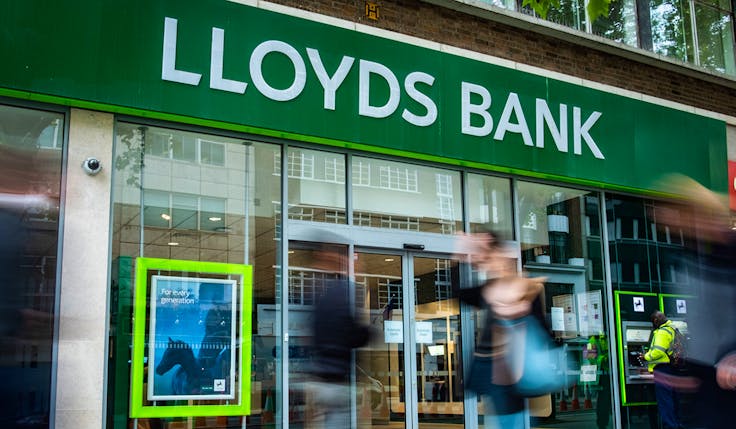Lloyds unveils new strategy backed by £4bn investment
Targeting growth as its “core focus”, Lloyds will spend around two-thirds of the £3bn earmarked for strategic investment over the next three years on diversifying revenue.
Lloyds Banking Group says “successful strategic execution” is helping the business achieve its customer-focused ambitions, as pre-tax profits rose 6% to £6.9bn for the full year.
The organisation now plans to invest £4bn over the next five years in a new strategy to become a “UK customer-focused digital leader and integrated financial services provider, capitalising on new opportunities, at scale”. Lloyds wants to “deepen relationships” with existing customers by making its channels simpler and more personalised to use.
Describing this as an “exciting new chapter”, the company believes the new strategy will set the group on a higher growth trajectory with “more diversified revenue streams”. The bank says its purpose – helping Britain prosper – is driving the business model and strategic choices.
Efforts will focus on improving access to quality housing, promoting financial inclusion and education, enabling regional development and creating a more diverse workforce. Lloyds will commit to reduce the carbon emissions it finances by more than 50% by 2030, with its own operations becoming net zero by 2030.
“I am confident that the group’s purpose, customer focus, unique business model and significant competitive strengths, embodied in our ambitious strategy will ensure the group is able to deliver higher, more sustainable long-term returns and capital generation for our shareholders, whilst meeting the needs of broader stakeholders,” says group chief executive Charlie Nunn.
NatWest CMO: Speak the language of business or you’re in trouble
Describing growth as the “core focus” of the strategy, Lloyds will spend around two-thirds of the £3bn earmarked for strategic investment over the next three years on diversifying revenue.
The plan is for Lloyds to increase the depth of existing relationships with its 26 million customers by more than 5% by 2024, providing more personalised, relevant engagement.
The new strategy will also see Lloyds target a “mass affluent” audience, which the company deems an attractive and currently under-served segment. The business has identified a “clear gap in the market” for a digital-first, integrated offering combining a full set of banking, insurance and investment products.
The idea is to offer this pool of mass affluent customers – with income or wealth above £75,000 – a scale digital wealth offering and integrated banking solution.
In terms of cost savings, Lloyds is looking to reduce “central functions and office overheads” through a combination of automation, process simplification and a move to hybrid working aimed at cutting the company’s office footprint by 30% by 2024.
The bank admits delivering this strategy will require the business to build on the capabilities and new ways-of-working it has developed over the past few years, accelerating the pace at which it uses digital technologies and data to support customers.
Pushing innovation
In total, the Lloyds Banking Group boasts 26 million “customer relationships” and more than 18 million digitally active users, making it the UK’s “largest digital bank”.
Lloyds wants to increase its digitally active customers by more than 10% by 2024 to in excess of 20 million customers, leaning into its data and analytics capability to deliver personalised engagement, offers and pricing.
Over the past year, Lloyds says it has succeeded in strengthening its digital offering and attaining “record levels” of customer satisfaction, with its all-channel net promoter score maintained at 69 for the year.
The bank achieved 60% growth in SME products originated via digital compared to the previous year, driven by “increased digital marketing and improved client journeys”.
The business highlights its rate of innovation, including “record mobile app releases” up 180% on previous years. These digital innovations include becoming the first high street bank app to allow the management of third-party subscriptions and setting of variable contactless limits.
Lloyds also points to its desire to support families through the launch of a children’s banking and savings proposition, as well as its “strengthened” current account proposition. Halifax is now the most switched to bank in the UK, the business reports, following the launch of its current account switch service.









Comments